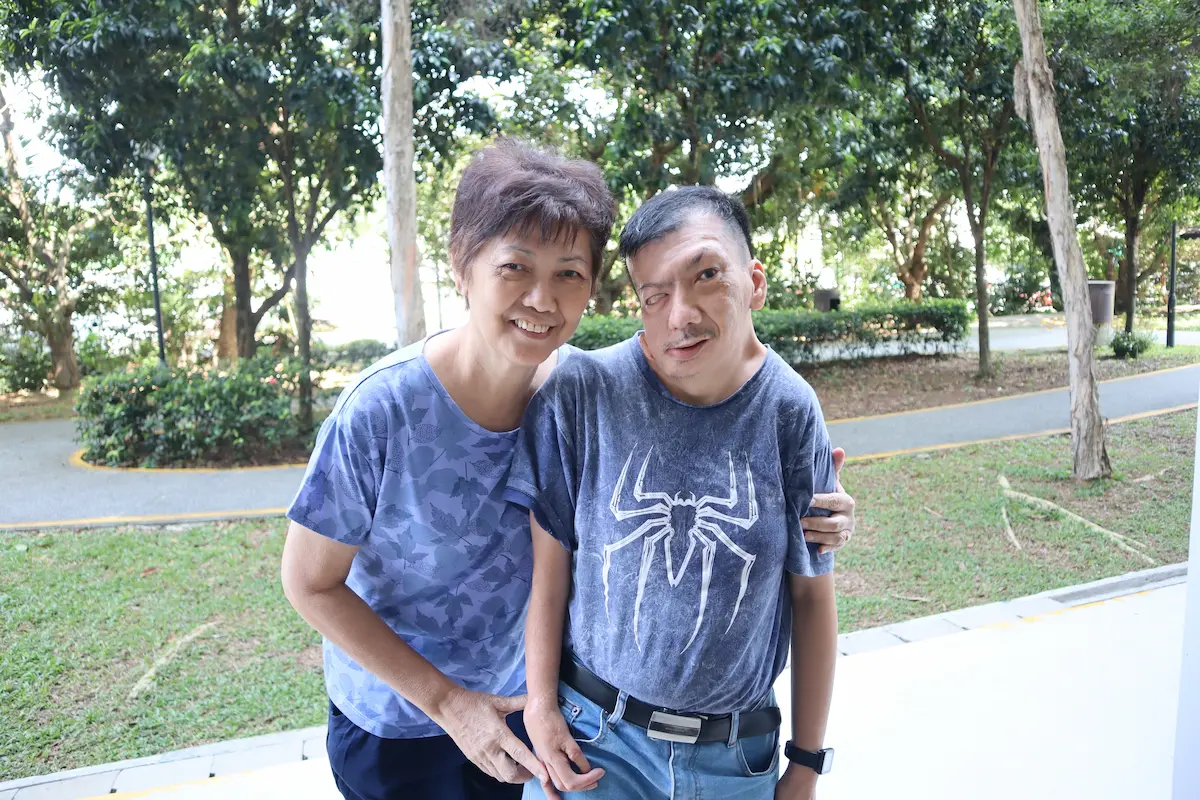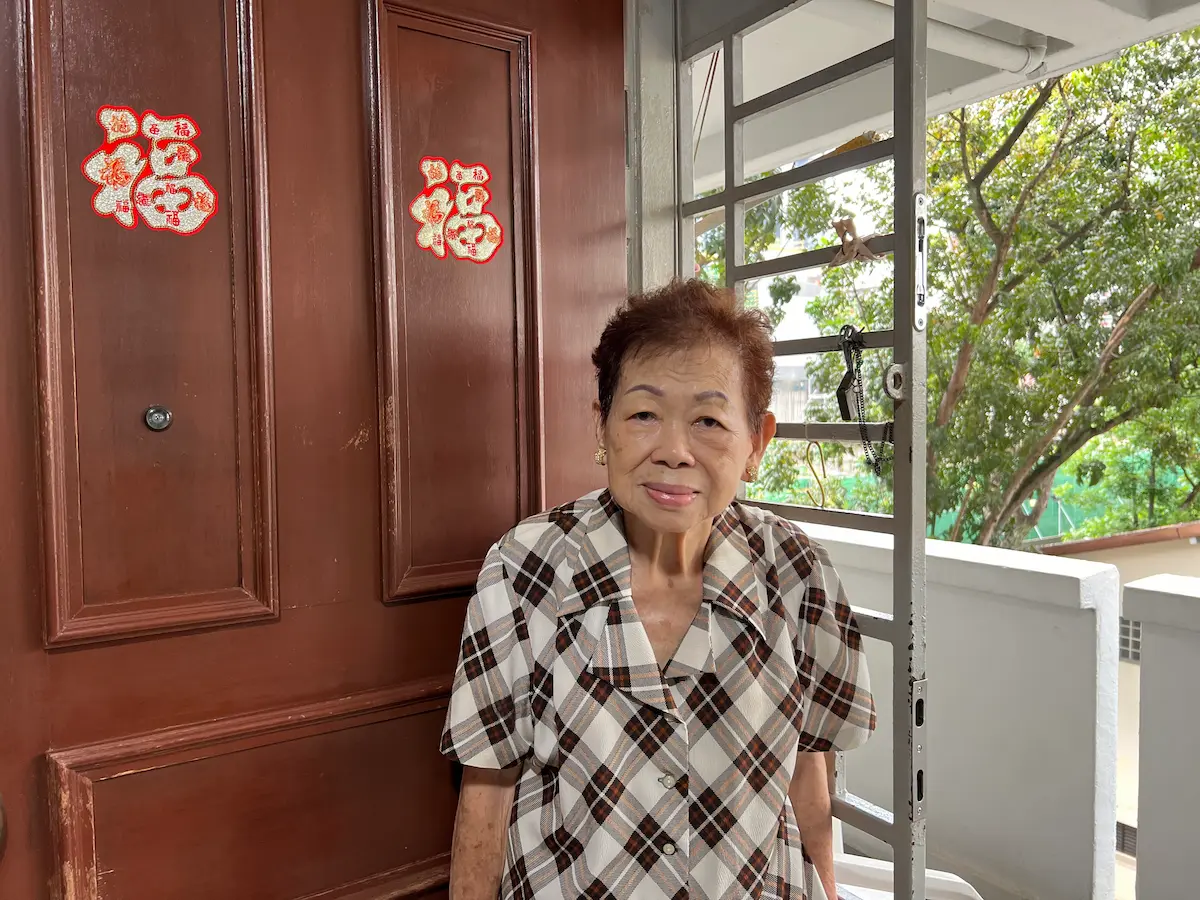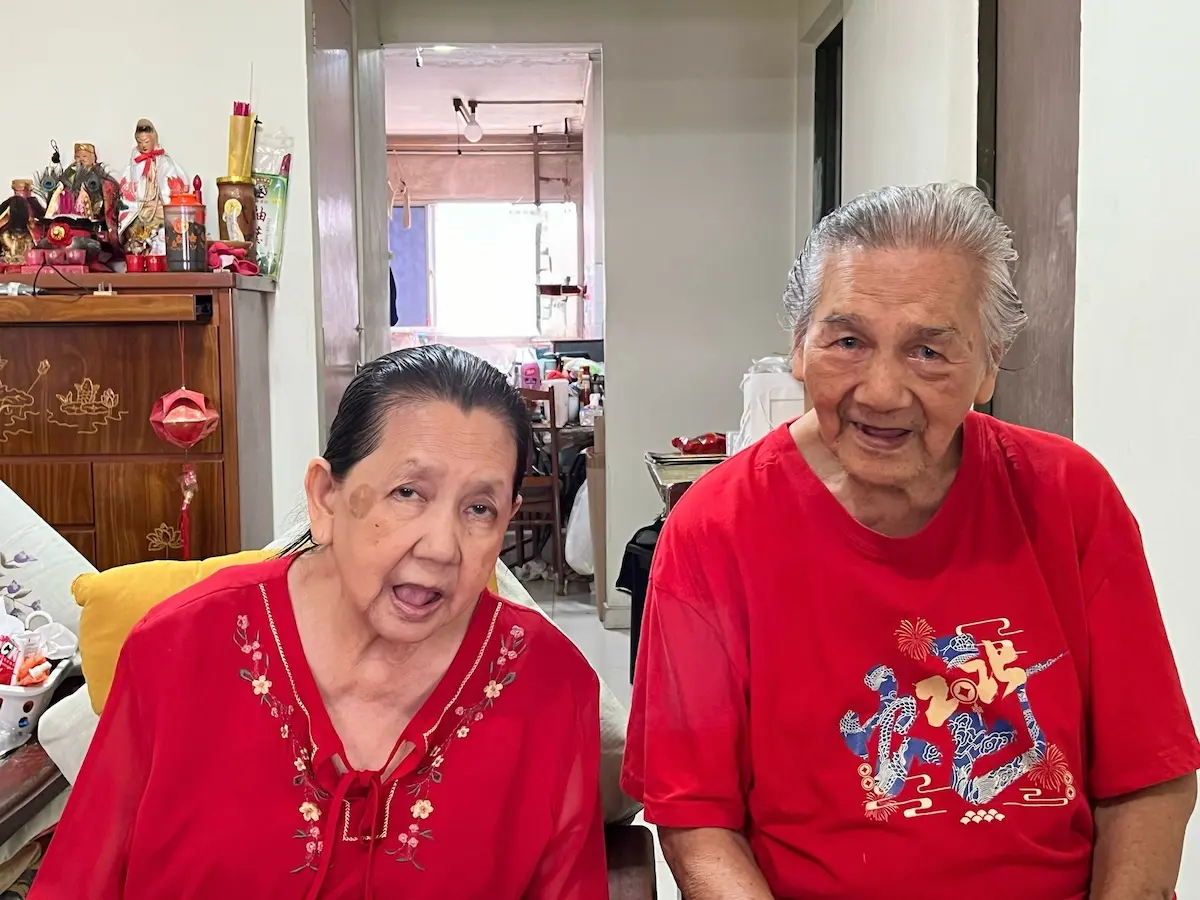A Lifeline of Hope
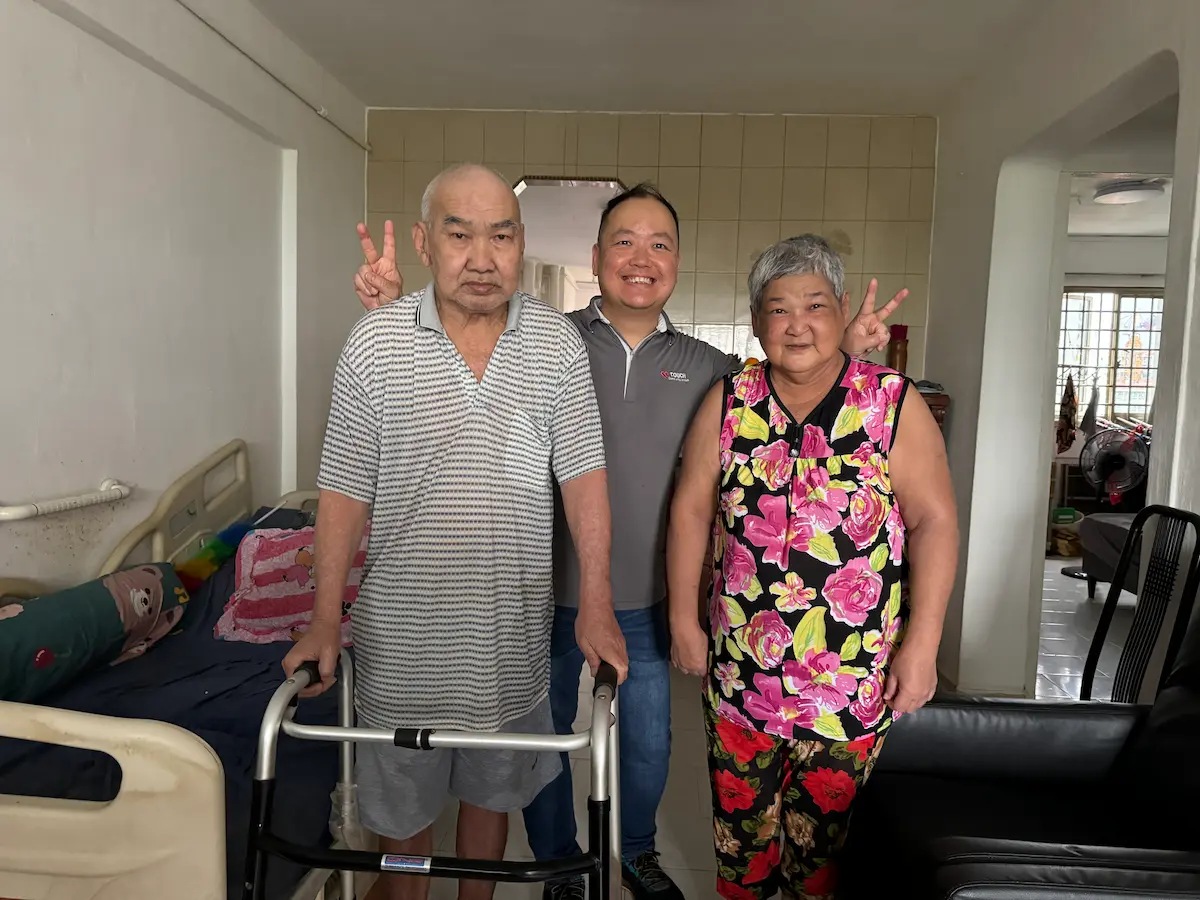
Just when Mdm Quek Soy Muay thought she could move on with life after her mother’s passing four years ago, she found herself taking on a new caregiving role, this time for her elder brother.
“After my brother had a bad fall, he became depressed and his life went downhill from there,” says the 63-year-old retired machine operator, who had spent two decades caring for her mother.
“It is tough for me as my brother refuses to wear diapers. He also has incontinence and has difficulties controlling his bowel movements. So, by the time he reaches the toilet, he would have soiled himself .”
Mdm Quek started feeling anxious and would struggle to sleep at night, fearing that her brother would fall again. She also suffers from her own medical issues.
“It’s sad to see my brother in this isolated state. He used to be active and sociable, always treating friends to drinks and meals.” adds Mdm Quek.
Timely help from the community
Overwhelmed by helplessness, Mdm Quek finally received a lifeline when she was referred by the Silver Generation Office to get help from the TOUCH team from CREST TOUCH @ Cheng San-Seletar, a mental health programme developed by the Agency for Integrated Care and Ministry of Health.
Mdm Quek was then linked up with Mr Errol Ang, a social worker from TOUCH. He listened to her challenges, explored solutions together with her, and connected both siblings with relevant health and social care services. He also supported them throughout their mental wellness journey. These included enabling Mdm Quek to go out with friends while her brother receives therapy at a Day Rehabilitation Centre. She was also encouraged to stay active by participating in the activities at a nearby Active Ageing Centre.
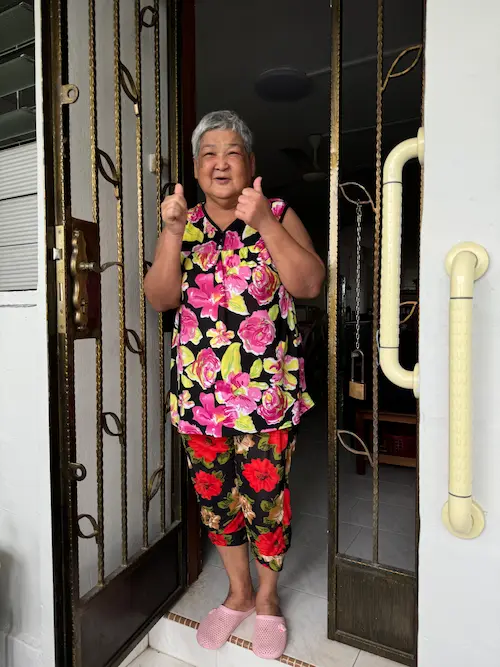
Caption: With help from TOUCH and community partners, Mdm Quek feels hopeful and confident.
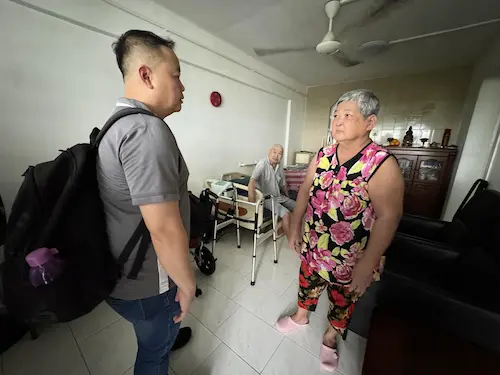
Caption: Social worker Errol checking in on Mdm Quek during a home visit
“When I first met Mdm Quek, all she wanted was a listening ear. She was experiencing caregiver burnout and had anxiety issues. My role is to journey with her and help her build mental resilience. I also approached our community partners to address some of her issues. For example, we got help from the town council to repair her fan and water heater. Corporate volunteers were also roped in to spruce up her home with a fresh coat of paint, and to sponsor some renovation works and furniture items,” says Errol, adding that both siblings are now more cheerful. “When Errol comes to our home, he will buy our favourite food. During Chinese New Year, he will also bring festive goodies. He is very helpful and I feel relaxed talking to him. He is funny too and likes to joke with me. I feel touched to see many people helping me. I feel so much better now,” says Mdm Quek with a smile.
=====
About the Community Outreach Team (or CREST)
The community outreach team, also known as the Community Resource, Engagement & Support Team (CREST), focuses on raising public awareness of mental health conditions and dementia, promote early recognition of at-risk individuals and providing emotional support to individuals and their caregivers. This team works with other community partners on facilitating preventive activities to reduce the risk of mental health issues and conducts meaningful activities to support the clients’ well-being and stimulate their cognitive functions. It is also the community node to link individuals to relevant health and social care services when necessary. The community outreach team is one of the programmes under the Community Mental Health Masterplan developed by the Agency for Integrated Care (AIC), together with the Ministry of Health (MOH), which enables persons living with mental health and dementia to seek early treatment nearer to their homes and ensure that they are well supported in the community.
Published in 2024
